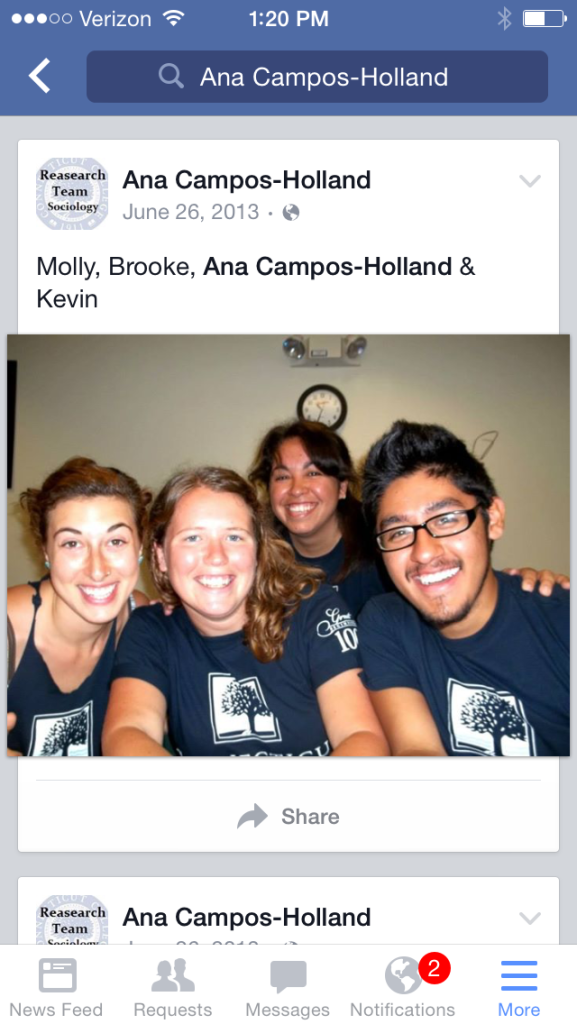This post is written by Ana Campos-Holland, Assistant Professor of Sociology.
At the onset of my faculty status, I decided to separate my personal from my professional social media use. This means that I have a personal Facebook account from which I manage a “Prof. Campos-Holland” public profile. Since I am still figuring out how to manage my professional social media performance, I have been slow to move to other social networking sites. Within Facebook, I promote an inclusive research process, campus-wide learning, and just began to engage in socio-political expression.
 As a faculty member, I aim to engage in an inclusive research process that creates opportunities for my student researchers to make significant contributions. Since the research process is intense and lengthy, I use social media to celebrate each milestone, from meeting data collection goals to now the publication of our first paper. It keeps our campus community, families, and friends informed about our activities and upcoming events. Most importantly, we promote the teaching-meets-research pedagogical approach. Through this inclusive research process, I have come to understand that knowledge is freedom, empirical literacy is informed freedom, and empirical creativity is empowered freedom.
As a faculty member, I aim to engage in an inclusive research process that creates opportunities for my student researchers to make significant contributions. Since the research process is intense and lengthy, I use social media to celebrate each milestone, from meeting data collection goals to now the publication of our first paper. It keeps our campus community, families, and friends informed about our activities and upcoming events. Most importantly, we promote the teaching-meets-research pedagogical approach. Through this inclusive research process, I have come to understand that knowledge is freedom, empirical literacy is informed freedom, and empirical creativity is empowered freedom.
In communities of higher education, learning is an ongoing and intense process. Thus, I also aim to connect in-class learning objectives with campus-wide activities. To do so, I use social media to promote relevant events on campus, especially those that are directly linked to course learning objectives. I think that learning starts in the classroom, but course projects and campus-wide events, especially those prompting campus-wide conversations, intensify the learning process within the campus community.
Lastly, I aim to create a safe space for students’ socio-political explorations and the development of their own perspectives. In doing so, I focus on engaging them in an analysis of societal structures and an exploration of the empirical realities of our social world. In this process, I usually do not make political statements in the classroom nor on my professional social media account. Lately however, I made a public statement on social media about how racism is disproportionately threatening the learning process for students of color. Aware of context collapse, I am beginning to engage in socio-political expression on social media that I stand by regardless of context.
